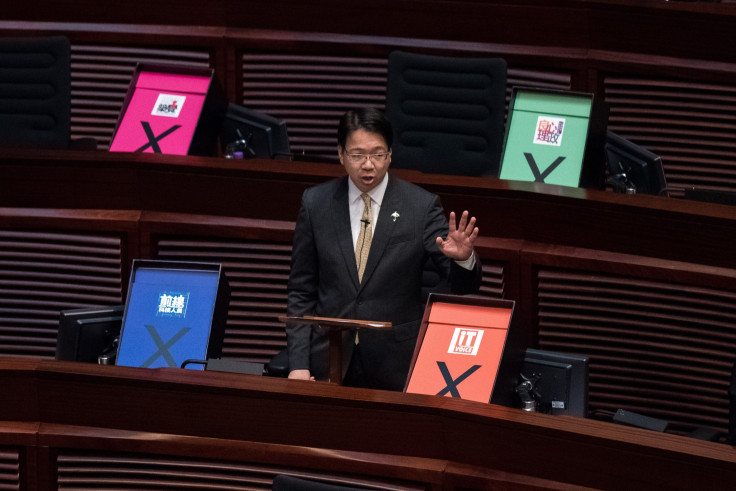Hong Kong Lawmakers Reject Political Reform Bill, Leaving Democratic Development Uncertain

HONG KONG -- City legislators voted down a controversial political reform bill Thursday, leaving the city's path toward a democratic system uncertain. The result of the vote, which came after two days of debate, drew cheers from crowds of supporters gathered outside the city's Legislative Council complex.
The bill would have seen the region's next chief executive directly elected by voters in a ballot to be held in 2017. All candidates, however, would be politically screened by a pro-Beijing committee. The bill was widely expected to be rejected by the pan-democrats, a bloc of pro-democracy city lawmakers who command enough votes to block legislation.
“It’s the end of this chapter but the beginning of another struggle -- a struggle for democracy,” Emily Lau, chairwoman of Hong Kong’s Democratic Party, who voted against the plan, told Bloomberg. “We will continue our struggle in a dignified and peaceful way.”
Illustrating the extent to which the result was seen as a foregone conclusion, about 30 pro-establishment lawmakers walked out of the chamber less than a minute ahead of the vote, according to the South China Morning Post. Ultimately, 28 lawmakers voted against the bill, with 8 voting in favor, after the walkout by pro-establishment legislators.
Pro-democracy lawmakers had derided the Beijing-backed plan as “fake universal suffrage,” during the debate, while the bill's main advocate, Chief Secretary Carrie Lam, had argued that the bill had public support, and called for its adoption.
As a result of the bill's failure, the chief executive will continue to be appointed by a 1,200-person committee, widely viewed as stacked with Beijing loyalists.
The bill's defeat also represents a blow to the administration of current chief executive Leung Chun-Ying, and to the central government in Beijing, which laid down the lines along which the bill was drawn up.
While the bill's rejection is a something of a political victory for the city's pro-democracy movement, it also leaves them with no obvious means to advance their agenda.
“I think the political reform process is going to end for the time being,” Surya Deva, an associate professor at the City University of Hong Kong's law school, told International Business Times, shortly before the vote took place.
“I do not see any possibility of the government initiating that process again in the near future. So the current governance crisis and the deadlock will continue for the near future,” he added.
Tensions had been running high in the city all week, as thousands of protesters took to the streets to demonstrate against the bill, and police arrested 10 people in connection with an alleged bomb plot that was thought to be politically motivated.
© Copyright IBTimes 2024. All rights reserved.






















